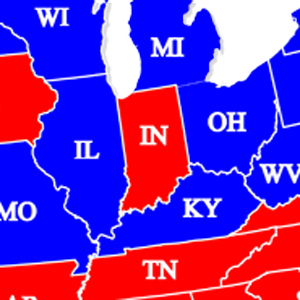Big Labor Hires Priests, Rabbis, and Imams as Union Organizers
From BigGovernment.com: A Los Angeles Times article exposed part of Big Labor’s undisclosed labor persuader scheme that uses the pulpit to promote compulsory unionism. The Times’ Stephanie Simon reported that the AFL-CIO “… hired more than three dozen aspiring ministers, imams, priests, and rabbis to spread the gospel …”of Compulsory Unionism. Her article provides a solid example of years of labor union bosses’ hiring religious leaders to act as labor persuaders; here the persuaders are attempting to use their religions to cloak the Big Labor message. AFL-CIO, the nation’s largest federation of labor unions, paid seminary students to organize “… security guards in metropolitan Washington, carpenters in Boston, hotel maids in Chicago, [and] meatpackers in Los Angeles. Some spend their days with the workers, trying to give them courage [read motivation] to mobilize. Others visit local congregations to urge solidarity with the union cause.” These AFL-CIO contracted “ministerial” apparatchiks “… march on management, quoting Scripture, hoping the power of prayer -- and embarrassing public theater -- might force concessions come contract time. ‘We're showing up in their office,telling them that God does not want them to act the way they're actingtoward their workers,’ said rabbinical student Margie Klein, 26. ‘They're going to get the message.’” Typically, the targets of these unionists are non-union employees and employers -- even employers who pay more than union wages and employees who receive better than union wages. [stream provider=youtube flv=http%3A//www.youtube.com/watch%3Fv%3DUfu_xQE49WQ img=x:/img.youtube.com/vi/Ufu_xQE49WQ/0.jpg embed=false share=false width=580 height=360 dock=true controlbar=over bandwidth=high autostart=false /] It will not come as a shock to Dave Bego and his employees, who experienced SEIU “corporate campaign” assaults that included clergy coordinated events and political pressure. (Years later, one member of the union organized clergy contacted Bego and said, “Mr. Bego I want to apologize to you. I have read your book, and I have done some soul searching, and I had already begun to have doubts about the SEIU. … I was behind the scenes. ..I was at the rally downtown where the other clergy were. I was there, and I spoke against you. That was wrong. I apologize; … I would be happy to write letters on your behalf recommending your company.”) SEIU’s religious organizing is highlighted in the Times article. Simon writes, “Rabbinical student clasped hands with Islamic scholar and Methodist seminarian. Heads bowed, eyes closed, they sang ‘Amazing Grace.’ And prayed that the security guards employed here would join the Service Employees International Union [SEIU].”







